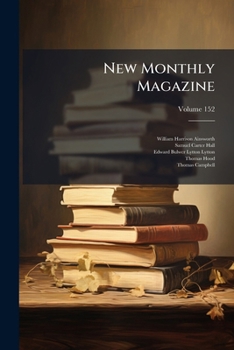New Monthly Magazine
Immerse yourself in the rich tapestry of Victorian literary culture with "New Monthly Magazine, Volume 152." This carefully preserved volume offers a fascinating glimpse into the literary landscape of 1878, showcasing the diverse voices and perspectives that shaped the era. Featuring contributions from prominent figures such as William Harrison Ainsworth, Samuel Carter Hall, Edward Bulwer Lytton, Thomas Hood, and Thomas Campbell, this magazine presents a captivating blend of essays, short stories, and articles on a wide range of subjects.
"New Monthly Magazine" provides invaluable insights into the social, political, and artistic currents of the late 19th century. Its pages reflect the intellectual debates, cultural trends, and literary styles that defined the Victorian period. Whether you are a scholar of Victorian literature, a history enthusiast, or simply a lover of fine writing, this volume promises to be a rewarding and enlightening read. Discover the enduring appeal of "New Monthly Magazine" and experience the vibrant literary world of a bygone era.
This work has been selected by scholars as being culturally important, and is part of the knowledge base of civilization as we know it. This work was reproduced from the original artifact, and remains as true to the original work as possible. Therefore, you will see the original copyright references, library stamps (as most of these works have been housed in our most important libraries around the world), and other notations in the work.
This work is in the public domain in the United States of America, and possibly other nations. Within the United States, you may freely copy and distribute this work, as no entity (individual or corporate) has a copyright on the body of the work.
As a reproduction of a historical artifact, this work may contain missing or blurred pages, poor pictures, errant marks, etc. Scholars believe, and we concur, that this work is important enough to be preserved, reproduced, and made generally available to the public. We appreciate your support of the preservation process, and thank you for being an important part of keeping this knowledge alive and relevant.





